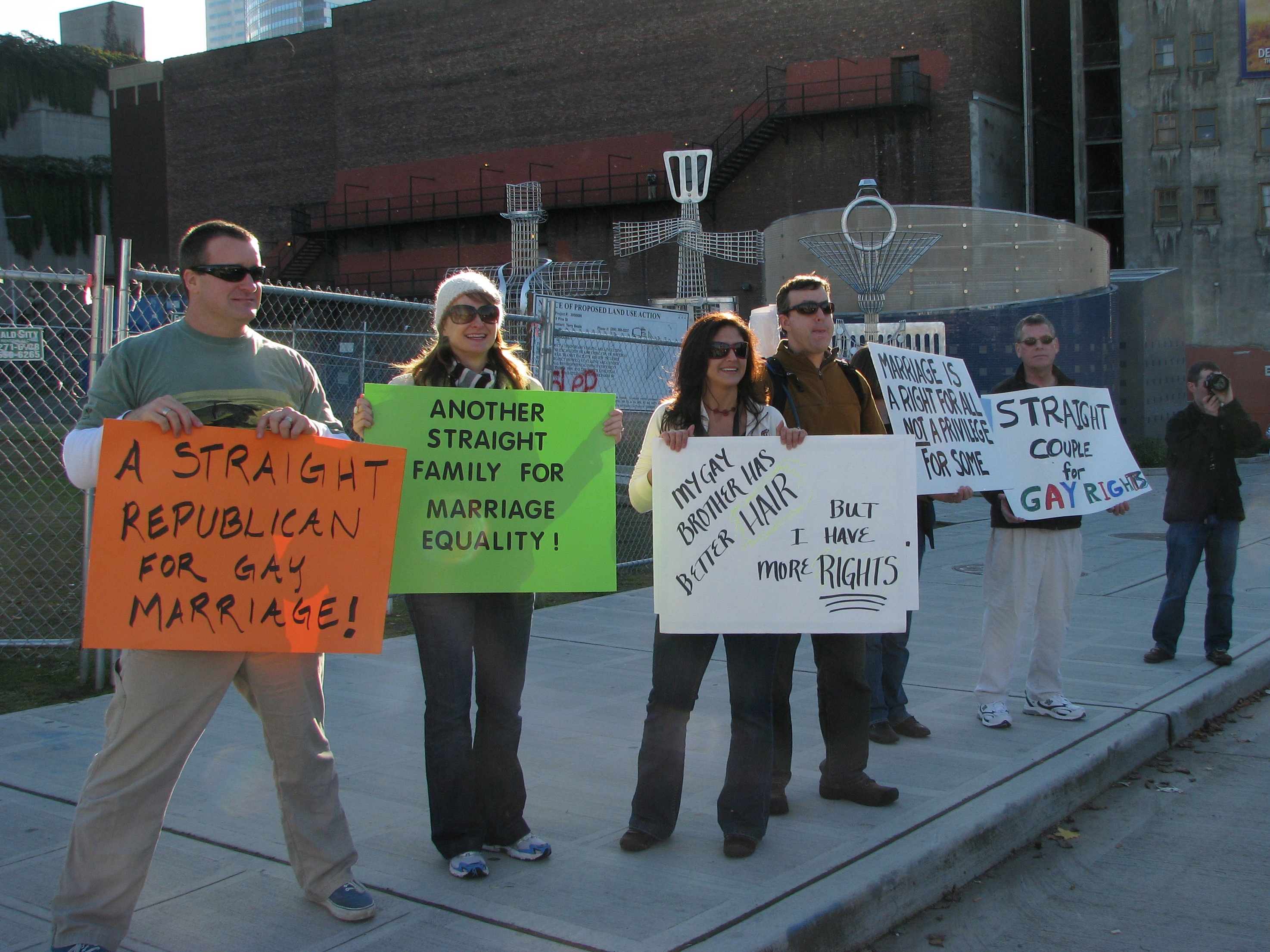WASHINGTON – Following the Supreme Court’s refusal to take up any gay marriage cases during the current term, Republican presidential hopefuls may have a difficult path to tread in 2016 if they want to avoid offending their religious conservative base while also not appearing behind-the-times to the mainstream electorate.
The court’s decision means that same-sex marriage will now be legal in 11 states where it was previously banned, making it essentially legal in 30 states and the District of Columbia.
Public opinion has moved rapidly. A 2011 Gallup poll showed for the first time a majority of Americans supporting legal same-sex marriage, and since then, the numbers have only gone up. According to a Pew poll in March, 61 percent of Republicans under 30 support same-sex marriage.
But when looking at the party as a whole, that number drops to 39 percent. Among religious conservative voters in important primary states like Iowa and South Carolina, the issue still carries weight.
Some, like New Jersey Gov. Chris Christie would rather take the Supreme Court’s approach and not say anything at all.
“I haven’t had a chance to read it,” Christie said at a Republican Governor’s Association event in Connecticut on Monday, according to the AP. “All I saw was the headline when I was coming up here, so I don’t give comments based on headlines.”
Others are not holding back. Sen. Ted Cruz, R-Texas, blasted the court’s decision in a statement on his website, calling it “tragic and indefensible.” Cruz said he plans to introduce “a constitutional amendment to prevent the federal government or the courts from attacking or striking down state marriage laws.” He accused the Supreme Court of “abdicating its duty to uphold the Constitution” by taking a pass on the cases.
The high court denied to review seven same-sex marriage petitions on Monday, along with1,500 other requests for reviews in unrelated cases.
But one thing that’s hard to deny is the momentum behind gay marriage support in this country. With the majority of young Republicans sympathetic, it’s not hard to imagine there will be a pro-marriage equality Republican presidential candidate soon, if not in 2016.
“Support [of marriage equality] is something that drives people to the polls,” said Gregory T. Angelo, executive director of the Log Cabin Republicans, an organization which has been representing gay conservatives since the 1970s. “Opposition is not something that drives people to the polls.”
A Washington Post ABC-News poll backs him up. According to the survey, released in March, a majority of Republicans—59 percent–say they are either more likely to vote for a candidate who supports gay marriage or that the issue won’t change their vote either way. The survey sampled 1,002 registered voters and had a margin of error of 3.5 percent.
And that may be the clearest sign of the future of the Republican Party and same-sex marriage.
Angelo is optimistic that if the Court revisits the issue later, his side will prevail.
“I don’t see the Supreme Court turning back the clock,” he said, but he added, “It ain’t over til it’s over. 30 out of 50 is not enough. This is a fight that will continue.”

